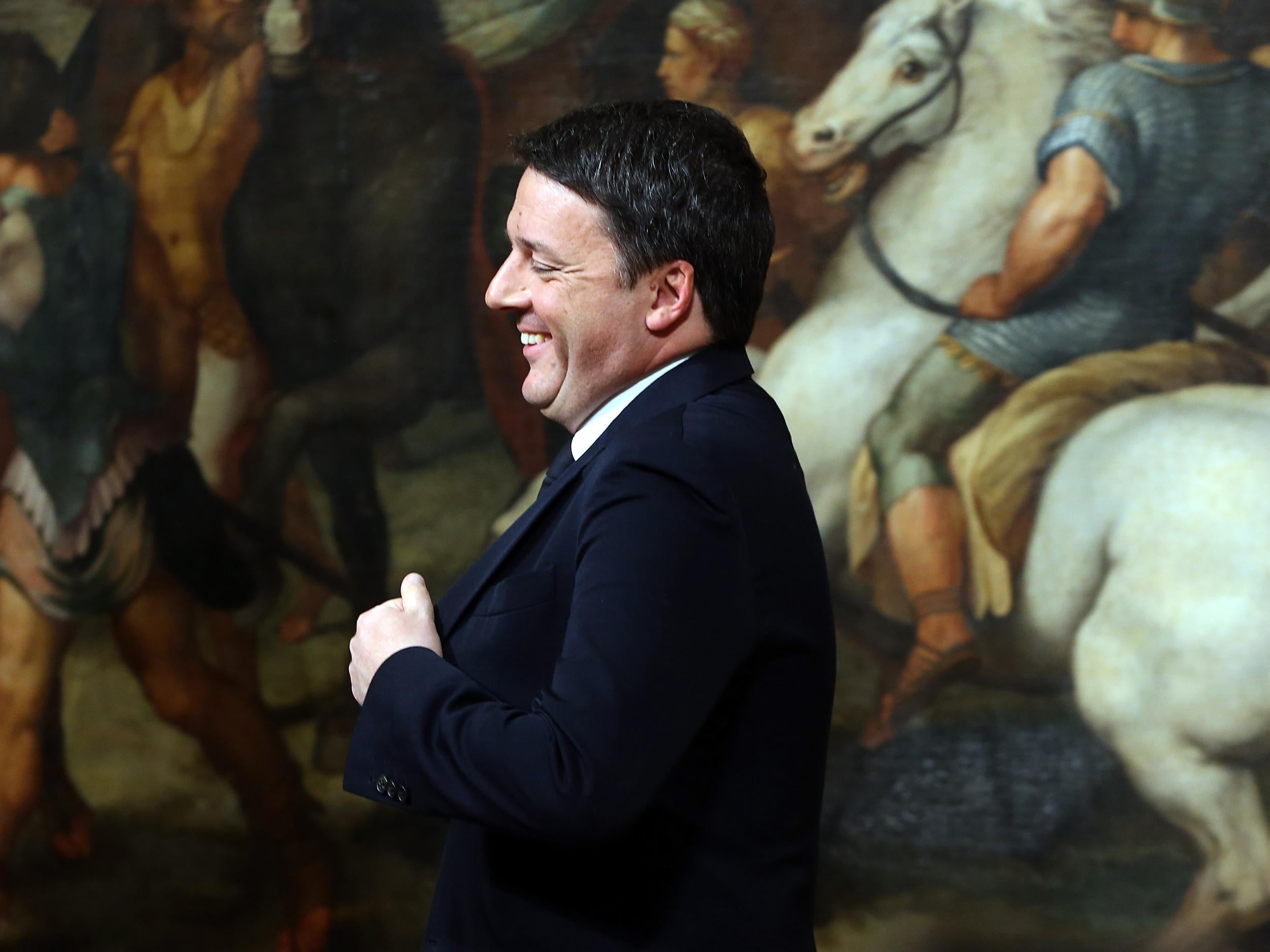Italian President asks Prime Minister Matteo Renzi to delay resignation
'My experience of government finishes here,' Mr Renzi said, after losing the referendum on Sunday

Your support helps us to tell the story
From reproductive rights to climate change to Big Tech, The Independent is on the ground when the story is developing. Whether it's investigating the financials of Elon Musk's pro-Trump PAC or producing our latest documentary, 'The A Word', which shines a light on the American women fighting for reproductive rights, we know how important it is to parse out the facts from the messaging.
At such a critical moment in US history, we need reporters on the ground. Your donation allows us to keep sending journalists to speak to both sides of the story.
The Independent is trusted by Americans across the entire political spectrum. And unlike many other quality news outlets, we choose not to lock Americans out of our reporting and analysis with paywalls. We believe quality journalism should be available to everyone, paid for by those who can afford it.
Your support makes all the difference.Italian President Sergio Mattarella has asked outgoing Prime Minister Matteo Renzi to delay his resignation until after the budget.
Mr Renzi said he would resign after Italians voted against reforming the country's parliamentary system in a national referendum.
But Mr Mattarella said in a statement he had asked Mr Renzi to stay on until the 2017 budget has been approved by parliament, which could be as soon as Friday, to prevent emergency funding rules from kicking in on 1 January.
Once the budget has been passed, the Prime Minister can resign, the President said.
Mr Renzi, the head of the centre-left Democratic Party, has been prime minister since February 2014.
He had staked his political future on a series of major reforms to the constitution which would have concentrated the political power of lawmakers, helping streamline Italy's lengthy legislative process.
The changes, affecting about a third of the constitution, would have weakened the upper house, cut down the number of senators, and cut the powers of regional authorities.
According to the country's laws, any move to centralise power has to be put to a popular referendum in a measure designed to safeguard against a return to Mussolini-era fascism.
Mr Renzi was attacked by his opponents, including the far-right Five Star Movement, on the grounds that the reforms could be dangerous for democracy.
But analysts suggested his biggest mistake was to conflate a set of complex political changes with his leadership in the eyes of the public, turning the vote into a popularity contest.
Mr Renzi said he took full responsibility for the “extraordinarily clear” defeat, with the final count showing the “No” camp winning 59.1 per cent to 40.9 per cent.
The 41-year-old former Mayor of Florence told the country after his defeat: “My experience of government finishes here.”
Join our commenting forum
Join thought-provoking conversations, follow other Independent readers and see their replies
Comments